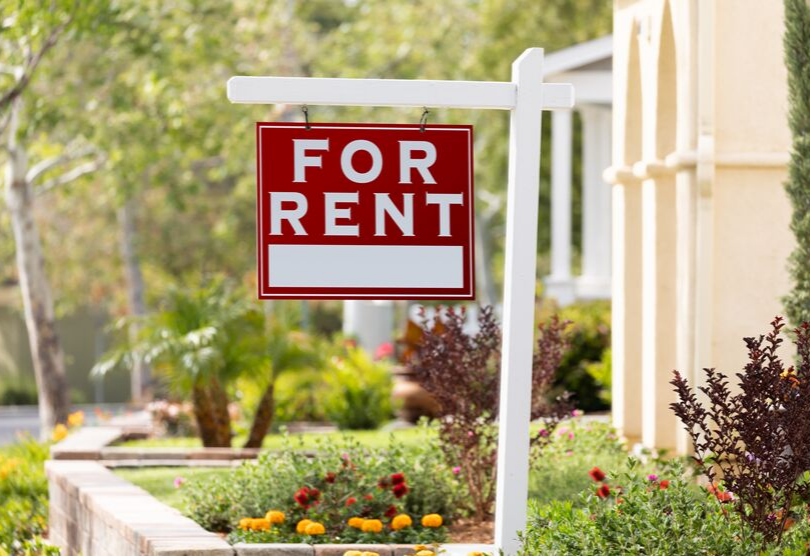
Whether you’re renting your first home, or you’ve been at it for decades, there’s no shortage of people with advice, tips, and warnings for you. But which of these are real, and which are just myths? Don’t let misinformation steer you wrong: here’s five myths about renting that you don’t need to fall for.
Myth #1: Renting is Throwing Money Away
Rent payments give you a place to live. Mortgages do that too, while also building equity. Therefore, renting is basically flushing your money down the toilet, right?
Not necessarily.
The rush to own a home as soon as possible oversimplifies a necessarily complex and context-specific issue. Finances don’t exist in a vacuum, and myriad factors make home ownership more or less risky at different points in our lives. Buying a home before you’re ready puts you in a dangerous situation. Even if you can make it work, home ownership carries numerous costs that can come out of nowhere. If your furnace dies in a rental, it’s an inconvenience, but one that your landlord will soon fix. But if you own your home, it can be an expensive repair with little to no warning...and not one you can safely ignore in a Massachusetts winter. HOA fees, landscaping, taxes, and other repairs can add up quickly. Buying too early can dig you a financial hole that will take years to climb out of.
While home ownership is a worthy ultimate goal, it’s important that it makes financial sense for you if and when you take that step.
Myth #2a/2b: You Will Always/Never Get Your Security Deposit Back
There are two preeminent theories on this topic, neither of which is particularly realistic. Let’s start with the optimistic one. Counting on the money from your security deposit coming back your way in full is poor financial planning to say the least. Even if you are fastidiously perfect about cleaning and maintaining your space, everything from errant guests to misunderstandings on what does and does not constitute damage can jeopardize your deposit. You can do everything right, but if someone nicks a corner while moving out your furniture, it’s going to have to be addressed one way or another.
On the other side of the coin, a pessimistic assumption that losing your security deposit is a forgone conclusion is hardly realistic. Worse, it can lead to a careless attitude – after all, if you’re not getting your security deposit back, why bother to take care of the property? – making a self-fulfilling prophecy.
Instead, it’s best to approach your security deposit with a measured approach. Make certain that you’re clear about what does and does not constitute a violation, and be sure to document any existing dings, nicks, or other issues for later. Remember, landlords are individuals too, and each may handle things a little differently. According to Massachusetts state law, “the normal wear and tear in an apartment is not a deductible item of damage.” It’s never wrong to ask. But don’t make financial decisions on something that isn’t in writing.
Myth #3: Your Landlord can Enter Your Apartment Whenever They Want
Many a prospective renter has lost sleep over the thought of their landlord arriving unannounced while they’re in the shower, sleeping, or not even home, and just letting themselves in. It’s their building after all, and they surely have keys. So what’s stopping your landlord from just coming in wherever?
The law, for starters.
In Massachusetts, landlords have the right to enter apartments at “reasonable times, and upon reasonable notice” in order to show the apartment to prospective tenants, lenders, purchasers etc., to inspect or repair the premises, or to inspect the unit within 30 days of your tenancy’s end in order to determine what, if any, deductions will be made from the security deposit. The two big exceptions worth noting are if the apartment appears abandoned, or if there’s a court order. And that’s it.
And if you are handed a lease that allows your landlord to enter your apartment in a way that isn’t listed in MA law, then that lease is not legal. So do your homework, and always, always, always read your entire lease.
So how does this work in practice? Just how long in advance is considered reasonable notice, anyway? Well, some states define this explicitly as either 12 or 24 hours, but in MA, the law does not explicitly define this. That means it’s up to you and the landlord to decide this when you’re signing the lease or agreement. Once agreed upon, that’s the standard that must be held to. If your landloard knocks on your door without warning, you certainly can let them in – you just don’t have to. Conversely, if you’re given notice within a time frame that’s consistent with reasonable notice as outlined in your lease, you cannot bar the landlord from entering.
The TL;DR version is that your lease is a legal agreement between tenant and landlord. If either party breaks that, the other has grounds for legal action.
Myth #4: You Cannot Rent an Apartment With a Poor Credit Score
Credit scores can be rough. Between medical bills, student loans, and credit card debt, your score can wind up much lower than you – or landlords – would like. Still, that doesn’t have to be the end of it. There are plenty of steps that you can take to get that apartment regardless.
The most reliable way is, of course, to find someone with a good credit score to co-sign the lease with you, or to apply with a roommate who passes the checks with flying colors. That said, having someone else’s name on the lease is far from the only solution.
Remember, credit and background checks are there to protect landlords from “unreliable” tenants. And if that does not describe you, then finding ways to assure the landlord might get you that apartment after all, credit score notwithstanding. If you can provide pay stubs, and letters of recommendation from previous landlords, that can be more than enough to convince your landlord that you are a tenant worth having.
Myth #5: If Something is in the Lease, it is Non-Negotiable
Sometimes potential tenants balk at the terms of a lease, and walk away before even trying to work something out. Even in a competitive market like Greater Boston, renters still have leverage. In virtually all cases, a rented property is preferable to a vacant one. So if there’s a deal-breaker in the terms, bring it up to your prospective landlord, and see if you can work out a deal. If they say no, well, you were going to walk away anyhow. But don’t give up on the apartment of your dreams over something that could be easily addressed. Landlords want good tenants. If you’re going to be a good tenant, then it’s worth the trouble to try and work something out. Don’t get pushy or greedy, but don’t feel you have to compromise or walk out if things aren’t immediately perfect.
Once you sign a lease, you’re bound to it. But up until that point, there’s room for negotiation.
When All Else Fails, Communicate
Ultimately, most myths about renting can be cleared up by simply doing some research and having a conversation with your landlord. MA law is remarkably clear and straightforward on what you can expect, and individual landlords will be only too happy to clarify their expectations, and what you can expect from them in return. Like any major commitment, feel free to ask questions before diving in.
Heard any rental myths that we didn’t cover here? Let us know in the comments!




